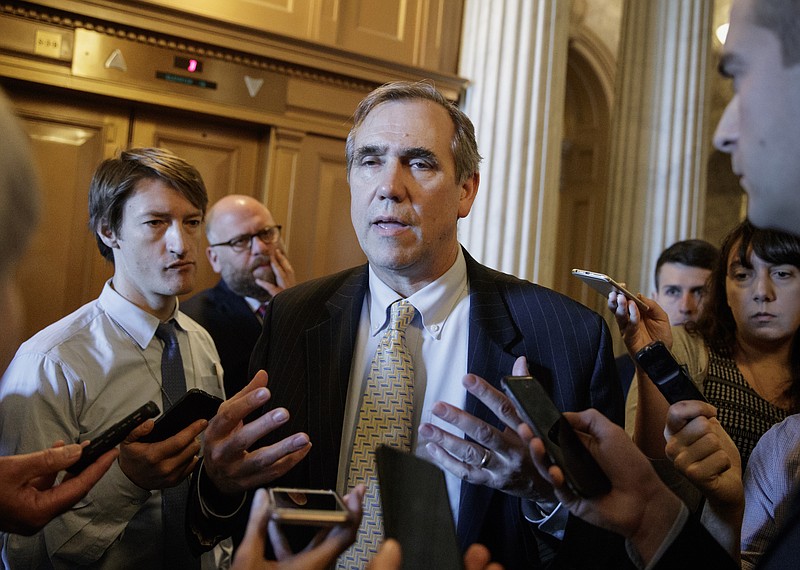WASHINGTON - Shortly after Senate Democrats successfully filibustered President Donald Trump's Supreme Court pick, Republicans voted Thursday to change long-standing rules to allow the nomination to advance by a simple majority rather than the traditional 60 votes.
The dramatic move, dubbed the "nuclear option," cleared the way for a full Senate vote Friday to confirm Judge Neil M. Gorsuch.
Earlier in the day, Senate Democrats had mounted a filibuster to block Gorsuch's nomination, only the second time in history such a maneuver had been successfully used against a high court nominee.
That vote to change the rule was 55-45, with four Democrats joining almost all Republicans to advance the nominee.
After Republicans voted to lower the threshold needed to overcome the filibuster to 51, Gorsuch - who was nominated by Trump to fill the seat made vacant by the death last year of Justice Antonin Scalia - appeared on track to be confirmed Friday for the lifetime seat.
The bitter, history-making showdown over Gorsuch, a judge on the 10th Circuit Court of Appeals in Denver, is certain to fuel the toxic political environment in the Senate, deepening partisanship and gridlock.
Trump's nomination has become a referendum on the new administration. Republicans are working furiously to secure a legislative victory for Trump's first 100 days while Democrats are digging in to fight a White House under an investigative cloud for its campaign's possible ties to Russia.
Gorsuch had won a few positive endorsements from both sides of the aisle, but opponents voiced concerns about his past conservative rulings and reluctance to answer questions during his confirmation hearings.
Gorsuch would appear to bring a "textualist" approach to the court, strictly following the language of the law, not far from Scalia's "originalist" view of the Constitution.
Outside groups have pressured senators from both sides.
Democrats defended their use of a filibuster to block Gorsuch, noting that Republicans last year refused to even consider President Barack Obama's nominee for the vacancy, Judge Merrick Garland, leaving the seat open during the 2016 election year.
Republicans, in return, said their move to change Senate rules was justified because Democrats opened the door to such a move four years ago.
In 2013, frustrated over the Republican blockade of Obama's judicial and executive branch nominees, then-Senate Majority Leader Harry Reid changed the rules to lower the 60-vote threshold for confirmation of executive branch appointees and lower court nominees.
If confirmed Friday, Gorsuch would be expected to quickly be seated and begin hearing cases.
Filibusters of Supreme Court nominees are rare. When President Lyndon Johnson tried to elevate Justice Abe Fortas to the position of chief justice, senators filibustered in part over an ethics scandal that eventually forced Fortas to resign.
In 2006, Democrats, including then-Sen. Obama, tried to filibuster Samuel A. Alito Jr., but the effort fizzled and Alito was confirmed.
